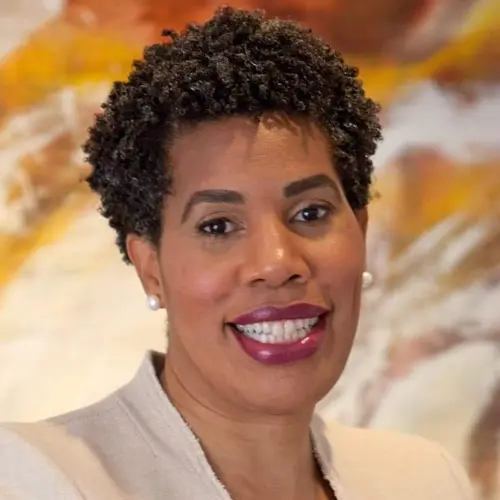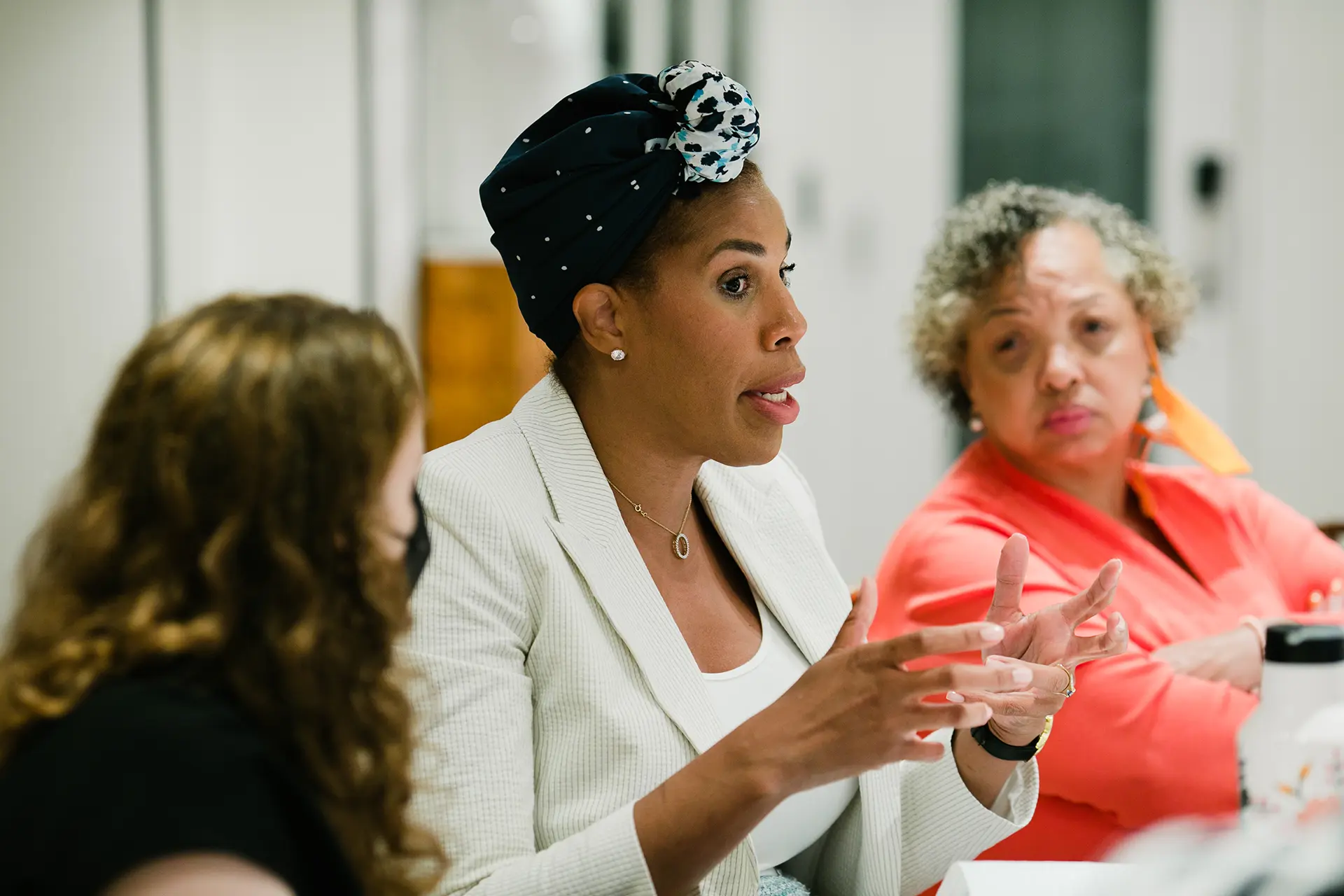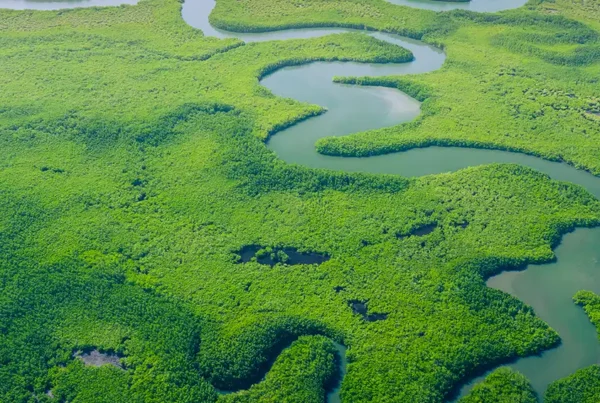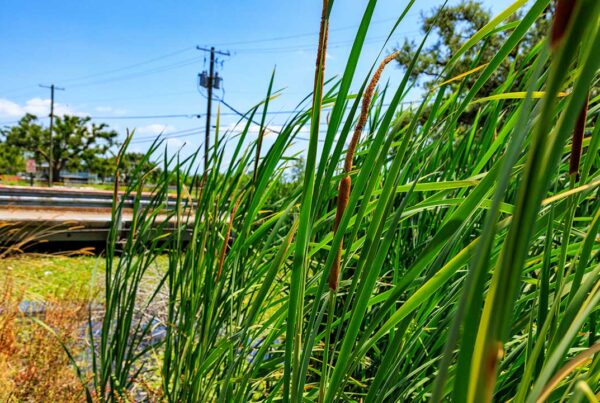A Q&A with Dr. Margot Brown, Acting Director of FRI and Senior Vice President of Justice and Equity at EDF

The Frontline Resource Institute (FRI, pronounced “free”) is a new venture established at the Environmental Defense Fund (EDF). FRI’s mission is to support frontline communities working to advance environmental justice and climate justice by providing the resources and technical assistance to build a world where all can achieve healthy, safe, and sustainable environments. In this Q&A, Dr. Margot Brown, Senior Vice President of Justice and Equity at EDF and Acting Executive Director of FRI, reflects on the launch of FRI, the process of bringing FRI to fruition, and FRI’s role as a convener in helping to build capacity for frontline communities.
What does the launch of FRI mean to you?
It means everything to me. For more than 25 years I have been a witness to unimaginable environmental injustices from Louisiana’s Cancer Alley to Indigenous Lands in Hanford, Washington.
In my current role at EDF, I have a unique opportunity and a responsibility to provide much needed support to community-based organizations on the frontlines of environmental and climate justice.
Through this effort, we’re engaging in iterative and dynamic discussions and then I’m raising funds and helping to identify resources that communities need. FRI’s Conceptual Committee, an advisory group of 11 frontline leaders, vet those resources to determine if they will be effective. The goal is to build something that is holistically created by and for frontline communities.
How were the seeds for FRI first planted?
The seeds for FRI were first planted not long after I joined EDF in December 2020. I knew many environmental justice organizations held an unfavorable view of EDF because the organization had overlooked local environmental problems in favor of solving issues at the global, national, and regional levels. As a first step in my new role, I spoke to as many people as I could – in six months I had 200 conversations with former federal colleagues, folks in academia, leaders of nonprofits and frontline organizations, and my EDF colleagues who had successfully built solid relationships with frontline communities.
Every time, a single theme emerged: capacity. No matter their background or positionality, everyone I spoke to communicated that frontline groups needed greater organizational capacity.
So, I paid closer attention to see how people were talking about capacity. That’s when I noticed capacity was being spoken about in three areas: technical assistance, funding, and legal assistance. With guidance from the Conceptual Committee, these eventually morphed into FRI’s three focus areas of shared learning, technical assistance, and funding and development.
FRI’s creation was a true collaborative effort. Describe the role of the Conceptual Committee in bringing FRI to fruition.
From the start, I knew that FRI had to be built by and for community-based, frontline organizations. And there’s no better way to build an organization than with the audience you are trying to serve. That’s how the Conceptual Committee came to be. I worked diligently with Vernice Miller-Travis at the Metropolitan Group to identify an array of people to sit on the committee.
The composition of the committee wasn’t without a bit of controversy. Some folks pushed back, expressing concern that the committee excluded some key environmental justice leaders. This choice was intentional – we were very deliberate in determining the committee’s composition. When you look at the committee members, you will see that there’s representation from a range of individuals across the globe. We needed geographical representation to truly understand the breadth of the needs. We also needed representation from across age groups, including those who’ve been at this work for decades and those who were born on the frontlines.
That richness and diversity of experiences on the Conceptual Committee is a real strength of FRI.
What types of services and resources can people expect to see offered through FRI?
When we started thinking about FRI, we didn’t know how it was going to come together. It was through the conversations I had, and input provided by the Conceptual Committee, that I realized there was an opportunity for FRI to serve as a strategic intermediary. This means that FRI will offer funding and grant writing assistance, in the form of workshops and coaching, to provide on-going support to frontline groups.
So, funding and development is one key area. Another key area is shared learning. The Conceptual Committee identified a need for spaces where frontline leaders can gather, learn from each other, and take advantage of educational opportunities. Many organizations already do this and do it well.
Since we don’t want to reinvent the wheel, our goal is to partner with people who have expertise in this arena and have FRI act as a convener.
We are bringing the resources, training, and expertise in and then disseminating it as directed by the Conceptual Committee.
The final key area is technical assistance. This could be somebody doing GIS mapping or sophisticated air monitoring analysis. It could also include securing legal assistance to help a group establish a 501c3.
What you’ll notice about all three areas is that they are intertwined. This goes back to capacity. And when we ACT – drive systemic accountability and build organizational capacity – we can ultimately transform.
FRI announced its first round of grantees in March. How will grantees in this initial cohort benefit from engaging with FRI?
We made the decision early on that we would think of the grantees as a cohort who learn from one another’s experiences. Grantees will meet for check-ins to determine if there are necessary services or resources that FRI could provide. That level of engagement will allow us to keep a finger on the pulse of the needs of frontline groups and inform the future direction of FRI.
We also decided that, at the end of the grant cycle, we would bring the grantees together for two to three days of in-person shared learning. Grantees will share their learnings with one another, with the certainty that they will have some innovative ideas that can be shared among their peers. The hope is that this grantee cohort will go forward together as a new network of organizations that can partner with and support one another.
Can you reflect on the process of establishing FRI thus far? Do you feel like you are on track with the concept you envisioned? Is there anything you would change?
Absolutely, I feel like we are on track. If there’s one thing I would change, it would be increasing awareness about FRI. We’ve been incredibly deliberate in building FRI, and the process went slower than a lot of people would have probably liked. However, it’s because of the deliberate steps we have taken that FRI became what it is. That wouldn’t have been possible if we listened to those who were pushing us forward too quickly or to those who lacked a full understanding of what FRI is and isn’t.
If you could offer some words of advice or encouragement to those in the FRI network, what would they be?
Just to keep going because the world needs you. I always say “people closest to the problem are also closest to the solution” and frontline leaders are a vital component to help solve the climate crisis.





